Adult cello.
It does sound a bit risqué, but I am trying to refer to learning to play the cello after you have become a fully mature human being (I'm still waiting to achieve this status, hence all my "adult cello" jokes).
It's one of the most rewarding and intriguing (some of my students might prefer to substitute the word "frustrating" here) endeavors I have ever been involved in. And it is not for the faint of heart.
Learning the cello as an adult takes some serious guts!
I began playing when I was 10 years old after seeing the James Bond movie, The Living Daylights. (Most of my students already know this story, but click HERE if you don't). Though I technically began cello as a child, I did have to relearn much of my technique when I got to college, so I am no stranger to the humiliating task of having to retrain inefficient or sloppy habits.
But still, learning the cello FROM SCRATCH as an adult is a whole different ball game.
I think about this adult vs. child issue nearly every day, since about half my studio is made up of people of all ages who began practicing the cello as a grown-up.
It does sound a bit risqué, but I am trying to refer to learning to play the cello after you have become a fully mature human being (I'm still waiting to achieve this status, hence all my "adult cello" jokes).
It's one of the most rewarding and intriguing (some of my students might prefer to substitute the word "frustrating" here) endeavors I have ever been involved in. And it is not for the faint of heart.
Learning the cello as an adult takes some serious guts!
I began playing when I was 10 years old after seeing the James Bond movie, The Living Daylights. (Most of my students already know this story, but click HERE if you don't). Though I technically began cello as a child, I did have to relearn much of my technique when I got to college, so I am no stranger to the humiliating task of having to retrain inefficient or sloppy habits.
But still, learning the cello FROM SCRATCH as an adult is a whole different ball game.
I think about this adult vs. child issue nearly every day, since about half my studio is made up of people of all ages who began practicing the cello as a grown-up.
| A few weeks ago, we decided during a Celli rehearsal to play a passage of music with our hands switched. (Don't ask why. I'm sure there was some artistic reason for this). So, we put our heads on the left side of our cello necks, used our right hands to press the strings down, and tried to pull the bow across the strings with our left arm... The results were atrocious and hilarious! But an interesting side effect of the whole experiment happened to be a renewed appreciation for our beginning students and the daunting hurdles they face... Especially the grown ups. |
One of my adult students recently sent me a link to an article that she said had helped her immensely:
In the Express Lane: Learning the Cello as an Adult, by Ethan Winer.
I immediately read it, loved it, and wanted to share it with you as soon as possible, so here's an excerpted passage from the introduction:
In the Express Lane: Learning the Cello as an Adult, by Ethan Winer.
I immediately read it, loved it, and wanted to share it with you as soon as possible, so here's an excerpted passage from the introduction:
I began playing the cello at the age of 43, and at the time considered myself fortunate to undertake this admittedly large project as an adult. As an adult I didn't have to contend with the trauma of outgrowing an instrument. I'd also played other instruments (electric guitar, Fender bass, some piano), and already understood how music "works." Perhaps most important, I had a determination to succeed that few children possess.
But starting as an adult also has unique drawbacks. Playing endless variations of "Twinkle Twinkle Little Star" is hardly interesting to someone who's studied musical scores and performed publicly. Worse, I knew how good music is supposed to be played, and my early efforts were not even close. Beginner children don't know how bad they sound, and thus are not so easily discouraged! Having played blues lead guitar for many years I knew what it felt like to be in control of an instrument - to play with feeling and conviction. I really hated being demoted to mediocre status as a beginner on the cello, and wanted to get past that phase as quickly as possible. What I hoped would be an enjoyable pastime soon evolved into an obsession to become proficient as quickly as possible that now occupies three or four hours of each day.
In the five years since I began playing the cello I've made a number of observations that I believe other adult beginners and intermediate players - especially those who are ambitious and are willing to work hard - will find useful. Like Sergeant Joe Friday on the TV show Dragnet, I have always been a seeker of "just the facts." I'm not interested in guesses, half-baked opinions, or anything that can't be substantiated. The facts I wanted to know are 1) What skills are needed to become an accomplished cellist, and 2) How do I get there in the shortest amount of time?
But starting as an adult also has unique drawbacks. Playing endless variations of "Twinkle Twinkle Little Star" is hardly interesting to someone who's studied musical scores and performed publicly. Worse, I knew how good music is supposed to be played, and my early efforts were not even close. Beginner children don't know how bad they sound, and thus are not so easily discouraged! Having played blues lead guitar for many years I knew what it felt like to be in control of an instrument - to play with feeling and conviction. I really hated being demoted to mediocre status as a beginner on the cello, and wanted to get past that phase as quickly as possible. What I hoped would be an enjoyable pastime soon evolved into an obsession to become proficient as quickly as possible that now occupies three or four hours of each day.
In the five years since I began playing the cello I've made a number of observations that I believe other adult beginners and intermediate players - especially those who are ambitious and are willing to work hard - will find useful. Like Sergeant Joe Friday on the TV show Dragnet, I have always been a seeker of "just the facts." I'm not interested in guesses, half-baked opinions, or anything that can't be substantiated. The facts I wanted to know are 1) What skills are needed to become an accomplished cellist, and 2) How do I get there in the shortest amount of time?
Read the rest of his article to find out what he prescribes to help the adult student progress quickly: http://ethanwiner.com/adultbeg.html
For your convenience, I have condensed all the exercises he has sprinkled throughout his explanation into an organized three-page warm-up. Feel free to print these out and add them to your practice routine. I highly recommend doing so!
For your convenience, I have condensed all the exercises he has sprinkled throughout his explanation into an organized three-page warm-up. Feel free to print these out and add them to your practice routine. I highly recommend doing so!

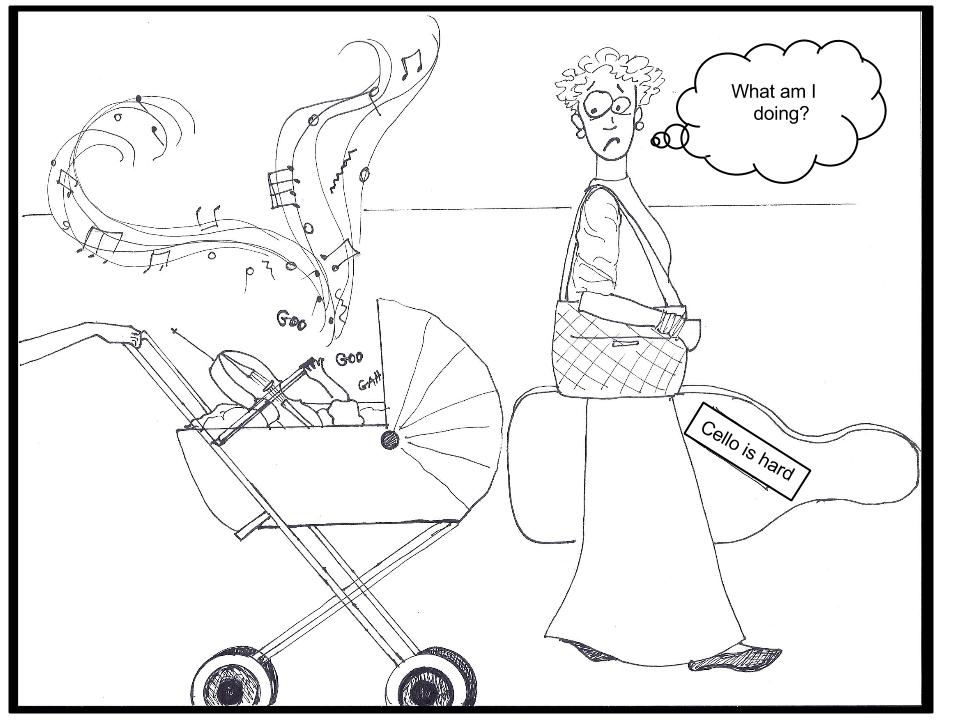
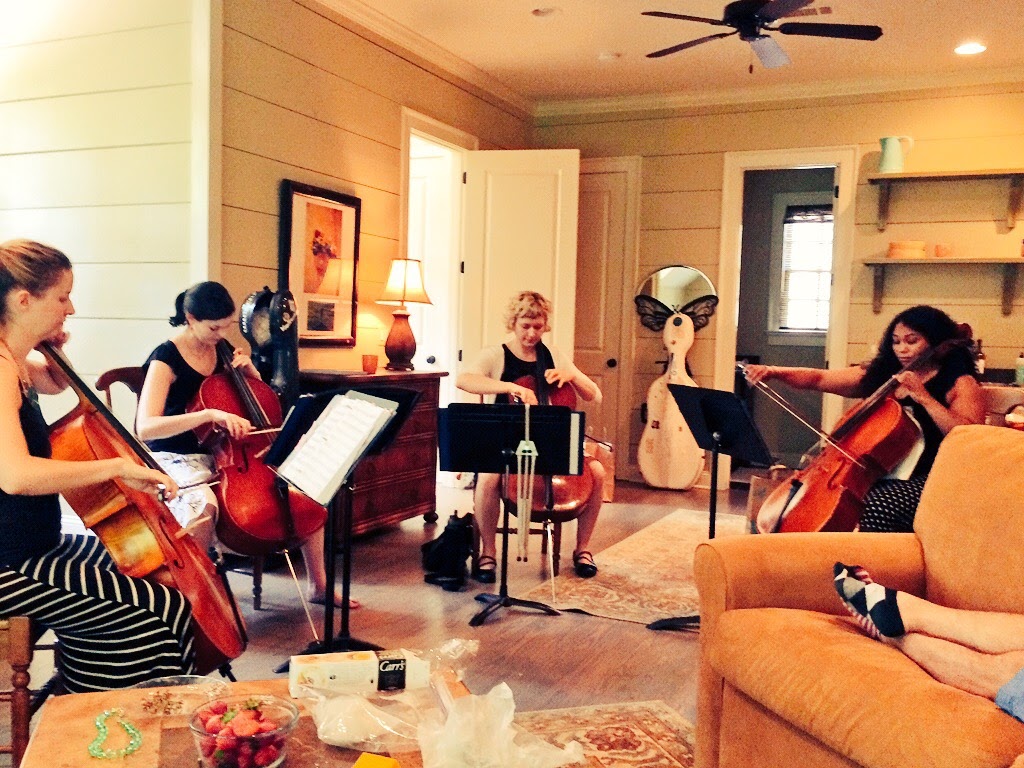
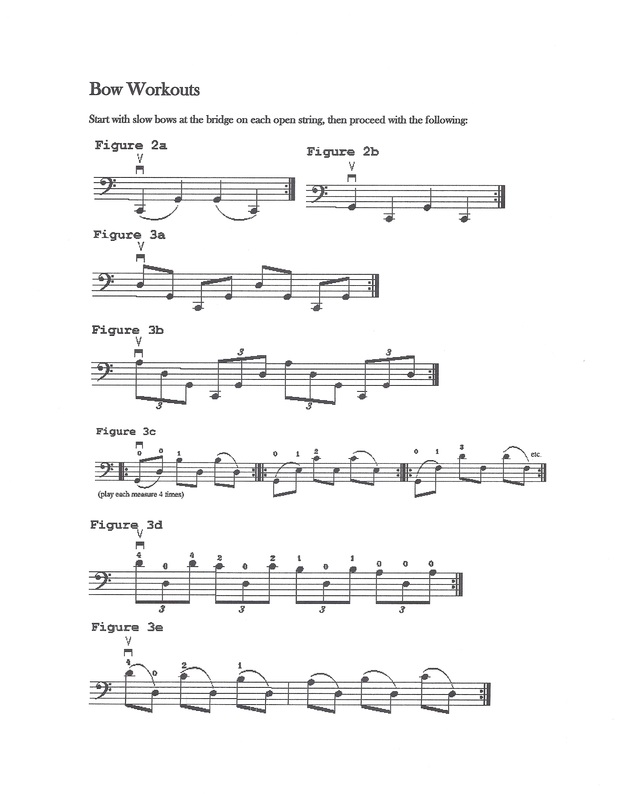
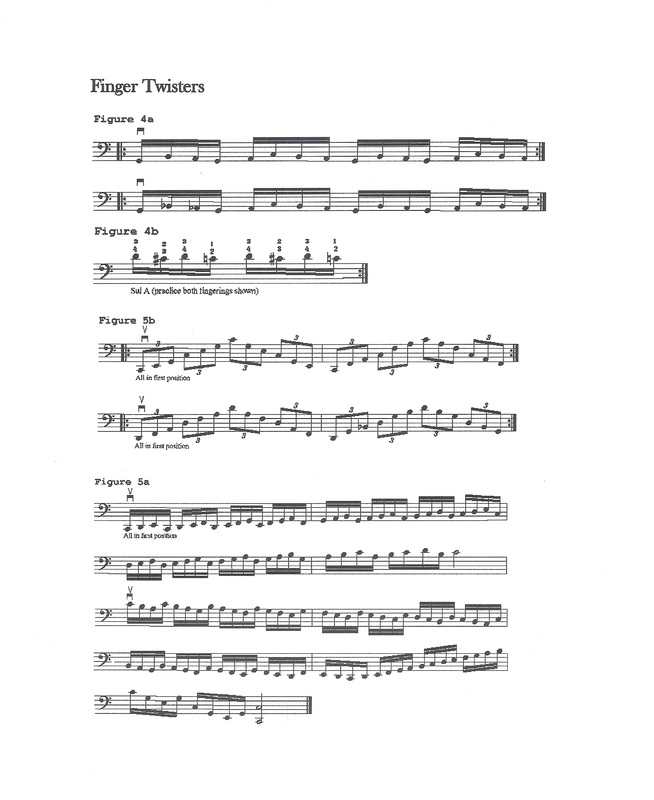
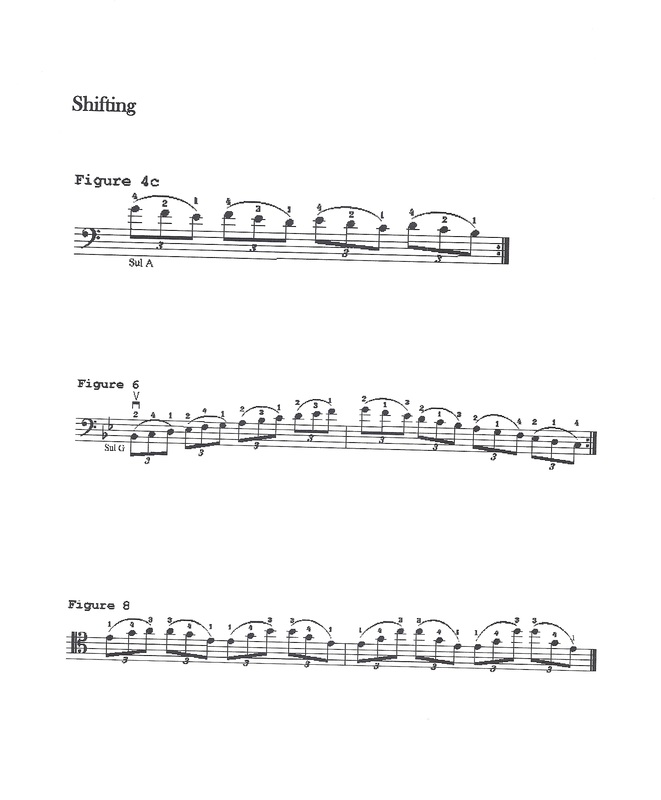
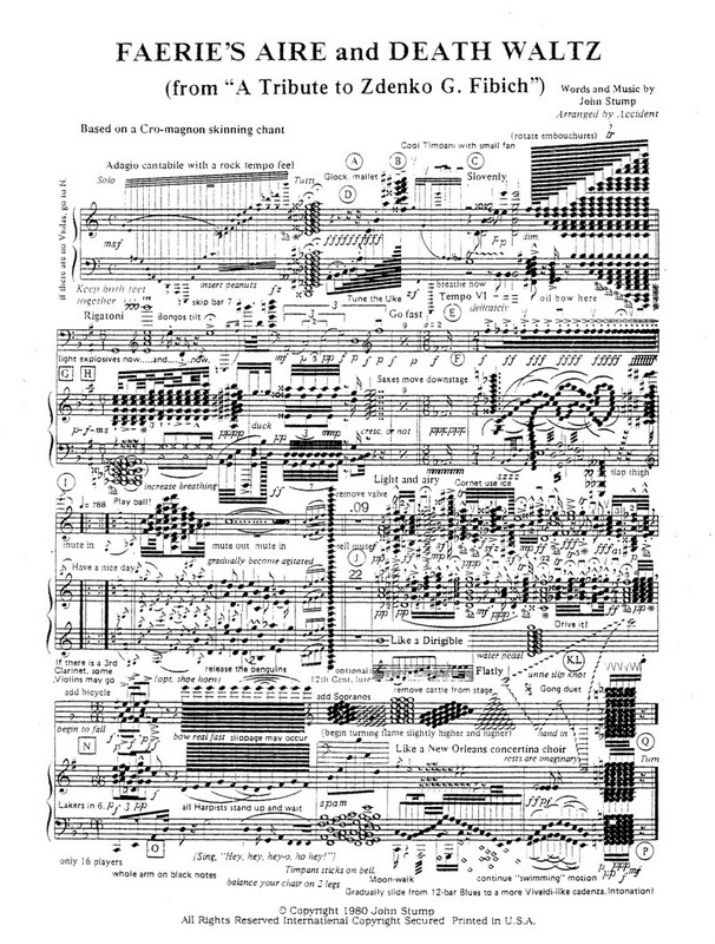
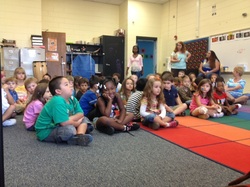
 RSS Feed
RSS Feed